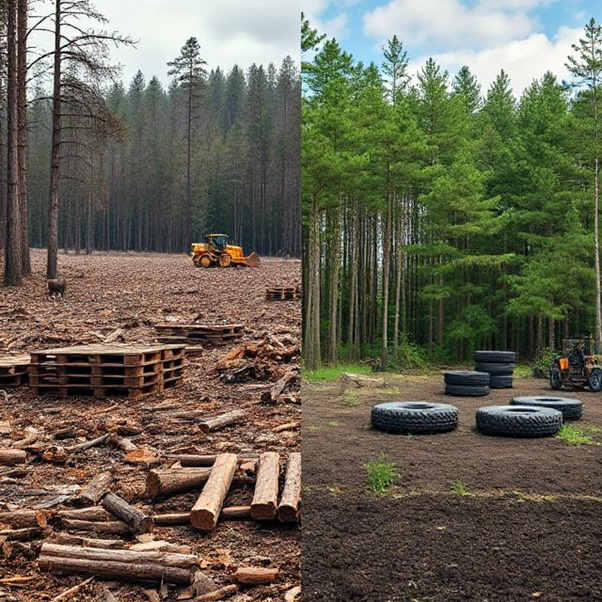Accelerating Deforestation
Global wooden pallet demand accelerates deforestation across continents, from North American boreal forests to Southeast Asian tropical rainforests. With pallets lasting only 2-5 years, continuous replacement cycles perpetuate resource consumption.
The Plastic Pollution Crisis
Global plastic pallet production generates 45 million tons of CO₂ annually from manufacturing. Critically, only 15% are properly recycled at end-of-life, contributing to the 8 million tons of plastic entering oceans yearly.
Biodiversity and Climate Impacts
Habitat destruction threatens countless species across biodiverse regions worldwide. Combined wooden and plastic pallet production contributes 180 million metric tons of CO₂ equivalent annually, while deforestation eliminates critical carbon sinks essential for climate stability.
India: A Critical Case Study
India exemplifies this crisis at scale, consuming 250 million pallets annually with 8-10% yearly growth. This devours 30% of India's industrial timber production—9 million trees yearly—while forest cover sits at just 21% (below the recommended 33%). India's plastic pallet production adds 2.8 million tons of CO₂ annually, with only 12% properly recycled. This threatens the subcontinent's 8% of global biodiversity, including Bengal tigers and Indian elephants, while undermining the 7.18 billion tons of CO₂ sequestered in India's forests.
The Global Urgency
As international trade expands, business-as-usual becomes untenable. Each delay means millions more trees harvested globally and additional plastic waste accumulating. Sustainable alternatives are now essential as regulations tighten worldwide and consumers demand environmental responsibility. Industry leaders must act now. Global forests, wildlife, and climate cannot afford further delays in addressing this critical supply chain component.

